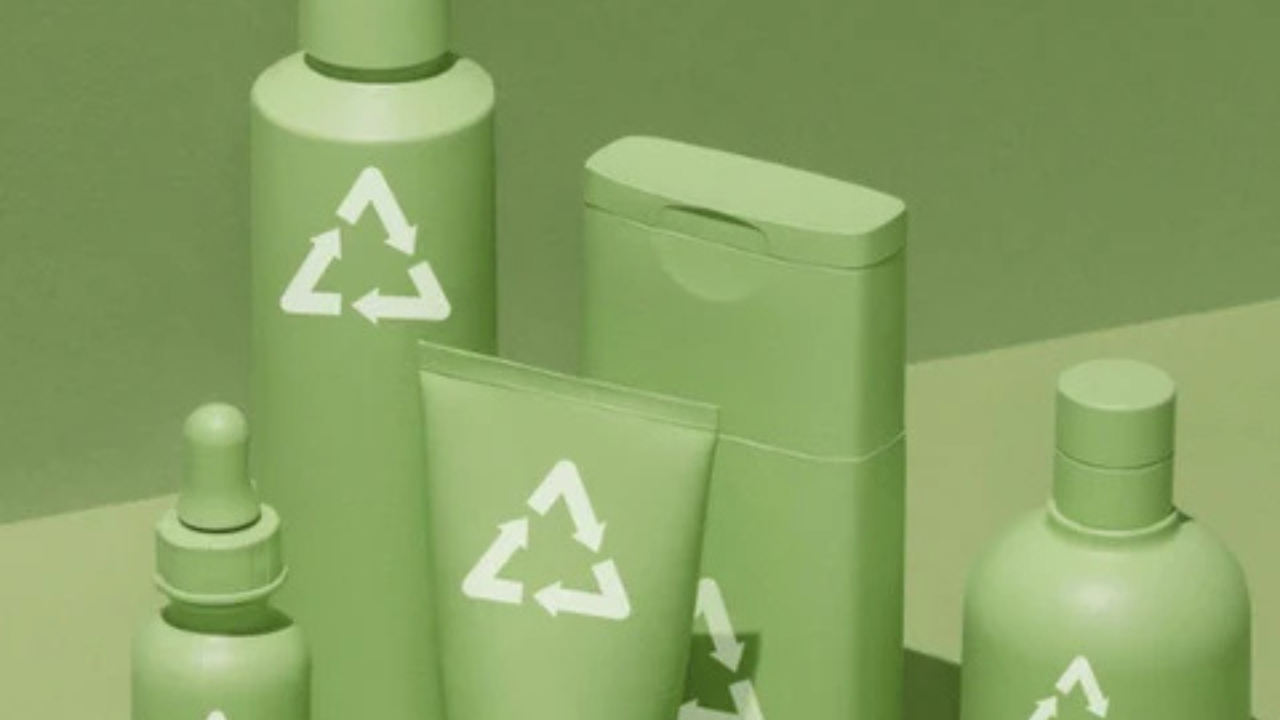Active brand activities in the beauty industry strive to establish sustainable packaging solutions because sustainability represents their top priority. Post-consumer recycled plastic has enabled sustainable packaging to achieve complete success. The recycling process of plastic waste generates this material that serves as a revolutionary force in hair care packaging solutions. Hair care brands and hair product containers wholesale suppliers should employ PCR plastic in their shampoo bottles, conditioner tubes, and styling products.
What is PCR Plastic?
The production of PCR plastic begins with collecting discarded plastic items, such as bottles and containers and packaging materials, to manufacture new packaging solutions. PCR plastic transforms waste materials into new, useful products instead of producing plastic goods from virgin petrochemicals. Plastic waste sorting begins the recycling process, which leads to cleaning operations followed by material shredding to produce raw materials that become high-quality materials for new product packaging.
The Growing Popularity of PCR Plastic in Hair Care Packaging
Environmentally conscious consumers continuously increase while seeking products that uphold their sustainability principles. Hair care brands that adopt PCR plastic packaging for their products gain market competitive advantages because they establish themselves as sustainable brands. Major retailers and regulatory bodies give active backing to recycled materials through legislation that accelerates the implementation of PCR plastic in packaging solutions.
Environmental Benefits of PCR Plastic
Reduction in Plastic Waste
PCR plastic stands out as an environmentally beneficial material because it extracts waste from both ocean areas and landfills. Hair care brands create circular economic systems by recycling plastic material, which decreases the need for new plastic manufacturing.
Lower Carbon Footprint
The production of PCR plastic requires less energy than the manufacturing process of virgin plastic. PCR plastic production helps businesses reduce their greenhouse gas emissions as they build sustainable business operations.
Resource Conservation
PCR plastic production helps companies reduce their need for fossil fuels since these materials serve as the main raw materials for virgin plastic production. The hair care industry promotes natural resource conservation by using PCR plastic as its main material while fighting environmental pollution.
Challenges and Considerations in Using PCR Plastic
Hair care brands face particular barriers when implementing PCR plastics, even though its benefits are clear.
Consistency in Quality
PCR plastic shows slight variations in both appearance and strength when compared to typical plastic products. The implementation of strict quality control standards must prove that recycled materials fulfill industry specifications regarding strength, safety, and visual beauty requirements.
Supply Chain Limitations
The growing market demand for PCR plastic could create supply shortages that would affect the stability of brand prices. Dependable supply partnerships, along with advanced recycling system investments and work to resolve current market barriers.
Consumer Perception
Sustainability benefits do not completely change consumer beliefs about the lower quality of products made from recycled plastics. Brands must demonstrate PCR plastic's advantages to customers through educational efforts regarding its dual environmental protection and product quality benefits.
Innovations in PCR Plastic Hair Care Packaging
Modern hair care industry solutions help improve the use of PCR plastic in packaging systems. Some notable advancements include the following:
Hybrid Packaging Solutions
PCR plastic and reusable liquid delivery systems join forces with environmentally safe resins to create waste-reducing packaging alternatives.
Advanced Recycling Technologies
Chemical recycling methods lead to improved performance and purity standards in PCR plastic materials. The recycling process generates high-quality materials that equal the performance standards of virgin plastic.
Lightweighting Techniques
Brands reduce plastic usage by creating lightweight, thin packaging for containers and bottles. This method decreases material usage without compromising vital product characteristics needed for hair care products.
Strategic Approaches.
Brands implementing PCR plastic must follow these methods to achieve successful implementation:
- Experienced PCR plastic suppliers provide consistent material quality and reliable supply to their customers.
- The packaging requires clear sustainability messages to inform consumers about the advantages of PCR plastic.
- Brand attractiveness improves through the development of sustainable packages that also maintain functionality.
- Setting exact sustainability targets for higher PCR packaging content creates brand trust with consumers and strengthens brand credibility.
Conclusion
PCR plastic enables an eco-friendly substitution of traditional plastics for hair care packaging containers. The circular economic system becomes possible through PCR plastic because it helps reduce waste while decreasing carbon emissions and safeguarding resources, which addresses consumer sustainability needs. Improved recycling technology combined with innovative packaging options pave the way for sustainable hair care solutions, even though supply shortages and consumer skepticism currently exist about the market. Brands that use PCR plastic achieve environmental preservation together with improved market reputation among sustainability-focused consumers.


